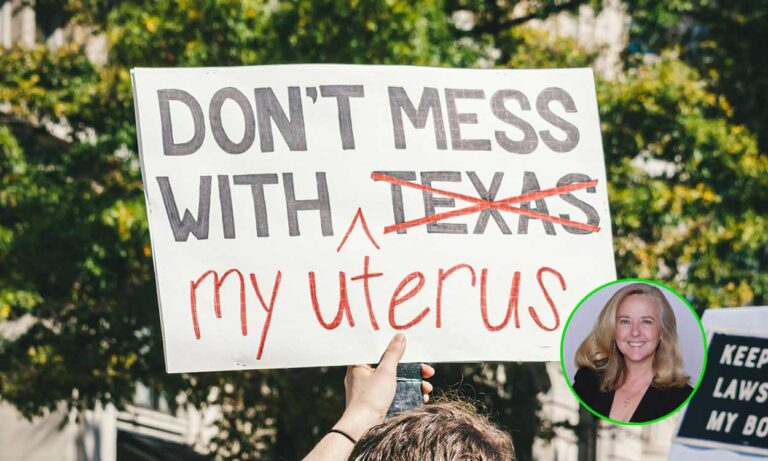Anti-abortion OBGYN who said 9-year-olds are fine to give birth appointed to maternal death committee
Texas sparked controversy by appointing Dr Ingrid Skop to a health committee tasked with reviewing maternal deaths. The decision drew widespread condemnation from people on the pro-choice side of the political spectrum because Skop, a San Antonio-based OB-GYN, previously justified abortion bans without rape exceptions by arguing children as young as nine can safely remain pregnant.
The Texas Maternal Mortality & Morbidity Review Committee was formed because Texas has a staggeringly high maternal mortality rate of 28.1 deaths per 100,000 live births in 2022, according to the National Center for Health Statistics. This rate has increased since abortion bans were passed after Roe v. Wade was overturned and multiple trigger laws came into effect.
The Texas Maternal Mortality & Morbidity Review Committee has a new member, Ingrid Skop, an anti choice dr who:
— Miranda (@DoomScroling) May 23, 2024
- Is one of the drs part of the lawsuit to revoke FDA approval of Mifepristone
- Testified in an affidavit that Kate Cox did not meet the requirements to qualify for… pic.twitter.com/cLkkMFgsdg
They need to check on every patient Dr. Ingrid Skop has ever had. https://t.co/Ubtm28lkOG
— Killa Kam / #JoeyJobs2024 (@trcterp) May 26, 2024
Since then, multiple women in the state have been denied medically necessary abortions even for complicated pregnancies. This includes the highly publicised case of 31-year-old Kate Cox, who was seeking an abortion for her high-risk pregnancy, which the state’s Supreme Court denied her.
Now, Texas laws ban nearly all abortions except for cases in which a doctor determines that the patient is experiencing “a life-threatening physical condition aggravated by, caused by, or arising from a pregnancy that places the female at risk of death or poses a serious risk of substantial impairment of a major bodily function.”
On top of this, 46.5 per cent of its counties are classified as prenatal and maternal care deserts. This describes areas with a severe lack of essential maternity care resources, where no hospitals or birth centres are offering obstetric care and obstetric providers available. Texas’ rate is markedly above the national average of 32.6 per cent.
In short, the state of Texas is currently not providing real choices and adequate health resources for having children, leading to a high maternal death rate.
Reproductive justice advocates are worried that Skop’s appointment could undermine the committee’s ability to accurately examine the impact of abortion bans on deaths during and in the immediate aftermath of pregnancy.
Kamyon Conner, executive director of the Texas Equal Access Fund, who was interviewed by The Guardian said: “This appointment speaks volumes about how seriously certain state leaders are taking the issue of maternal mortality. It is another sign that the state is more interested in furthering their anti-abortion agenda than protecting the lives of pregnant Texans.”
Skop has long been vocal about her anti-abortion stance, calling the US Supreme Court’s decision to overturn Roe v. Wade “a victory in the battle but not the end of the war.”
Further, the doctor infamously has argued in favour of forcing rape and incest victims as young as nine or 10 to carry pregnancies to term.
“If she is developed enough to be menstruating and become pregnant and reach sexual maturity, she can safely give birth to a baby,” Skop told the House oversight committee during a hearing in 2021.
Skop’s appointment, while still shocking, is simply reflective of the extreme direction the US’ pro-life movement is going. And moreover, the lack of protection now afforded to women and girls.






